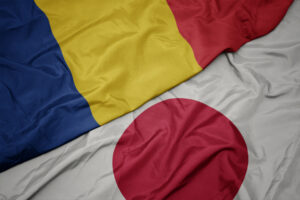On a market dominated by few large agencies, with tens of millions of euros in yearly turnover, there seems to be a significant struggle to lead the way. If you take a closer look, things are slightly different. Travel agents have very clear target audiences, most frequently consisting of return customers. “The tourism industry is not a very layered one. The boundaries are very clear. Aside from big businesses, there are also the very small agencies, making profit on hundreds of thousands of euros' turnover“, Traian Badulescu, tourism consultant, explains.
The market keeps growing at a steady pace
Tourism has seen a modest rise this year, of up to 10%, big enough, though, to surpass the one billion euros threshold. Is that a lot or not quite so? “We could have done better”, some travel agents believe, pointing to the insufficiently developed domestic tourism. As told so many times before, Romania has an enormous touristic potential, but it goes uncapitalized. Why is that? “Because we don't work together properly, we have no utter leadership. We still need a clear vision and a firm hold on things, even if there is political will”, stated Dragos Anastasiu, CEO, Eurolines Romania and TUI Travel Center. The closest example at hand is the Bulgarian seaside, where you see 600,000 German tourists going every year, while we barely manage to attract a few thousands. Why did the Bulgarians make it? “Because they had the strength to ask for advice from the Germans on how to organize tourism. And the Germans were ok with that“, stated the famous businessman in a previous interview for Capital. One thing is worth mentioning here: 70% of the Eurolines group's turnover is brought by the company Touring Europabus Romania, which owns a network of agencies called Euroline and TUI Travel Center. In four years' time, Anastasiu tripled the group’s turnover, all this while going through an economic recession. “I don't believe we're dealing with a sheer economic crisis. Not since 2010, at least. This is a normal business environment, in my opinion“, added the businessman. And the exact “normal environment” he mentions led to a slight improvement of the local tourism market.
Business travel, a 300 million euros' market
The business travel segment, accounting for 300 million euros, is becoming more and more visible. According to Happy Tour representatives, if on a global level a multinational has an yearly budget of about 30-100 million euros for business-related travels, in Romania that same budget won’t amount more than 1 or 2 million euros. For the same time frame, a Romanian company has a yearly budget of 300,000 to 500,000 euros. Usually, plane ticket bookings are made 5-7 days in advance. This is similar throughout the world. Also, the average travel cost is of 300 euros for a 2-day trip.
Most companies choosing to send their representatives on business trips here come from pharma, banking, energy and retail, according to Happy Tour. Also, Bucharest holds the record for business trips (90%), followed by Cluj Napoca and Timisoara. At this moment, domestic traffic accounts for only 8% of the total business travels, while long courier trips are 30% of the total travels. With Romania as a departure point, most trips head to Vienna, London, Paris, Istanbul and New York. “It mostly depends on the contracts each company has at a certain point in time. There are years when reps of a certain company travel only to one or more destinations, and once contracts finish there is a significant decrease in the number of trips”, says Javier Garcia del Valle, CEO, Happy Tour.
“The 67th place in the world”
In a survey done by Mercury Research together with Global Market Research, for the first half of this year, Romania is 67th in the top of the 84 most desirable tourism destinations in the world.
Our country got 26 points, even if only 1% of guests saw holiday offers or other marketing materials for Romania. The same study shows that most travel agents offer destinations like Greece (49%), Turkey (38%), or Bulgaria (36%). Moreover, in Europe the leader is Austria (58 points), followed by Italy (56), Croatia (54), Norway (53), Greece (52) and Great Britain (52). Statistically, Romania was visited in the first seven months of this year by 4.5 million domestic and overseas tourists, up 5% from 2013. That is not so much, compared to other European countries. Bucharest does not enjoy better statistics either. The MasterCard Global Destination Cities Index report, launched this summer, places Bucharest on the 90th spot out of 132 cities, the first place being held by London. According to Lucia Morariu, general manager, Eximtur, and president, The National Association of Tourism Agencies , “with an improved marketing mechanism, Bucharest could soon become an attractive destination, with so many entertainment possibilities and a rich cultural tourism offer, or a great number of events, concerts and shows.“ “I think business development and an increase in foreign investments will turn Bucharest into an interesting tourism destination, just like it happened back in 2006-2008”, said Morariu.





